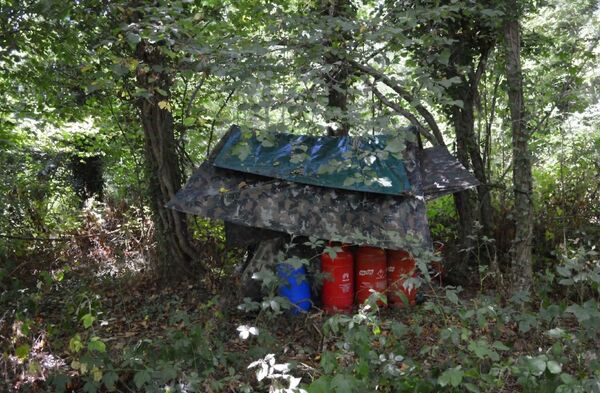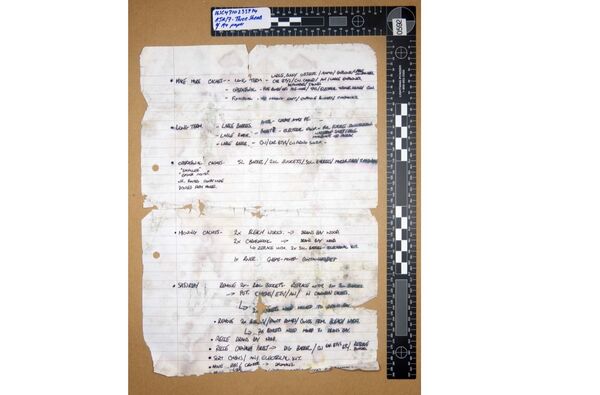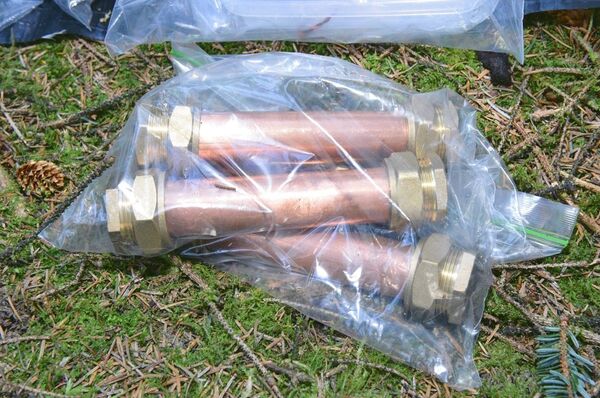Four of the pipe bombs he produced were used in attacks in Northern Ireland.
Former Marine from Larne given 23 year prison sentence for terrorism offences https://t.co/X9hpvVh5Sg
— PSNI (@PoliceServiceNI) 31 July 2017
Maxwell admitted a series of terrorist charges after police found 43 separate weapons caches in parts of England and Northern Ireland.
The caches also contained a digital dossier with details about 300 government and military targets, including named individuals.
#Devon & Somerset-based Royal Marine Ciaran Maxwell jailed for 18 years for terror charges, inc building bombs for use in NI @itvwestcountry pic.twitter.com/qZtMjyH5HP
— Nick Smith (@NickSmithITV) 31 July 2017
His lawyers claimed at the Old Bailey in London earlier in July that Maxwell had faked his support for the dissident republicans because he was "frozen" with fear, and he claimed members of the Continuity IRA still threatened his family.
But on Monday, July 31, the judge, Mr. Justice Sweeney, said he believed Maxwell was a skilled bomb maker who had "enjoyed" the thrill of making explosive devices.
He said Maxwell's actions were a "flagrant breach of trust and a betrayal of his position in the armed forces."
Cmdr Haydon describes the investigation into Ciaran Maxewell, a former marine who stockpiled & manufactured weapons to be used by terrorists pic.twitter.com/T8SP1xipsi
— Metropolitan Police (@metpoliceuk) July 31, 2017
Maxwell had made 14 pipe bombs and Mr. Justice Sweeney said they were designed "to maim and kill a potential victim."
Maxwell, a Roman Catholic who grew in the mainly Protestant town of Larne in County Antrim, claimed he had suffered from post-traumatic stress disorder after being beaten up in a sectarian attack as a 16-year-old.

Maxwell was living the small town of Exminster in south-west England and was based with 40 Commando in nearby Taunton.
A passer-by stumbled across one of the hides in Carnfunnock Country Park in Northern Ireland. Police found anti-personnel mines, mortars, ammunition and bomb-making materials.
A massive MI5 and MI6 operation swung into place and Maxwell, who had been identified by his DNA at one of the cache sites, was followed 24 hours a day. Eventually he was arrested.
During the sentencing, his lawyer, Paul Hynes QC, said Maxwell had lived a double life, as a "marine by day and, it seems, a Republican bomb maker while on leave."
He had built most of the bombs at his grandmother's home.
He used bitcoins to buy weapons parts on the internet and his online password was tiocfaidh1.
IRA terrorists, at the height of the Troubles, would often shout: "Tiocfaidh ar la" — which means "our day will come" — when they were sent to jail.

"We assess there's a strong likelihood that items associated with Maxwell have made their way into the hands of violent dissident republican groups in Northern Ireland and four of these items have been used — three in the last year. Not all of those devices detonated. Some did," said Assistant Chief Constable Stephen Martin, of the Police Service of Northern Ireland.
The Continuity IRA, and the Real IRA, were the two main splinter groups who refused to accept the Good Friday Agreement and promised to continue the "armed struggle" for a united Ireland.
The Real IRA were responsible for the Omagh bombing in 1998, which killed 29 people.

In June, someone claiming to be from the Continuity IRA, and using an accepted republican code word, wrote a letter to the Limerick Leader newspaper in the Republic of Ireland, claiming the group was disbanding.
"After meeting with our membership throughout the 32 counties it was decided that the opportunity now exists for the attainment of our political goals by abandoning the armed struggle," the letter said.


